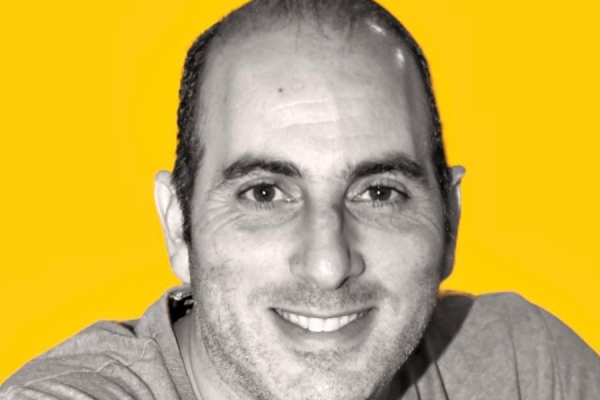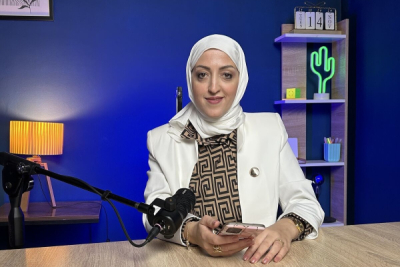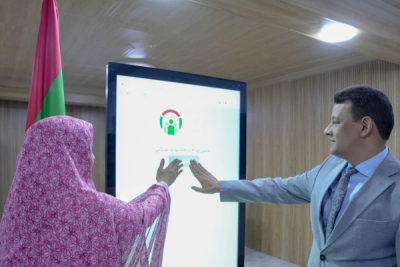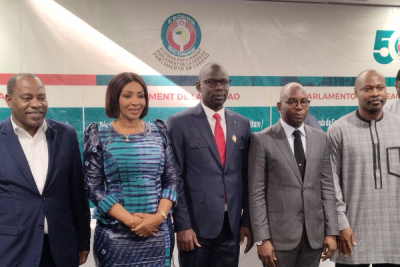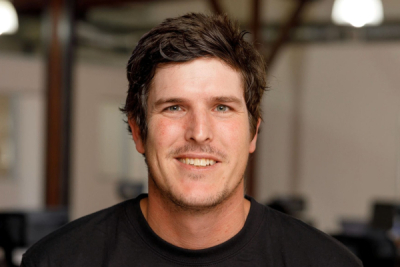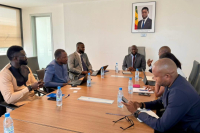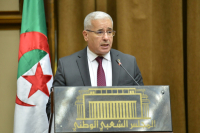Liquify, an invoice financing platform for SMEs, has officially announced the close of its oversubscribed $1.5 million seed round aimed at accelerating its expansion across Sub-Saharan Africa.
The round was led by Future Africa, with participation from Launch Africa Ventures, 54 Collective, and Equitable Ventures, along with a group of strategic angel investors. Emerald Africa also extended its debt facility, strengthening Liquify’s liquidity and enabling greater flexibility to support its expanding SME customer base.
With this fresh capital, Liquify plans to scale operations in its Ghanaian hub by hiring across product, technology, and customer success teams. The company will also expand into both Anglophone and Francophone markets, extending its reach to serve more SME exporters across the region.
Mohamed Benmansour, a Moroccan technology entrepreneur, creates digital tools to simplify business operations and improve everyday life in Africa. He founded Nuitée Travel in 2017, an online platform that helps travel agencies and airlines book hotel rooms for their clients through a direct connection to hotels.
“Our infrastructure allows developers to seamlessly integrate hotel booking features, simplify integration, and unlock unlimited possibilities,” Benmansour says. His API-based system links hotels to travel agencies, letting partners customize their own booking interfaces, control pricing, and manage their audience.
Nuitée Travel aggregates offers from 2.2 million properties worldwide, including hotel chains, independent hotels, global distribution systems, and channel managers. Through modular APIs and white-label solutions, it enables businesses to keep full control over their brand while offering a streamlined booking experience.
Benmansour’s entrepreneurial journey began with Safarclick Travel Group, an online travel agency he founded in 2009. A year later, he co-founded Superdeal.ma, a Moroccan group-buying site. In 2013, he launched Ticket.ma, an online ticketing service. In 2014, he introduced Binga, a digital payment platform that lets businesses and government offices accept cash payments at local points of sale.
Before starting his ventures, Benmansour earned a master’s degree in electrical engineering from the Rochester Institute of Technology in 2004. He then worked as an application engineer at Silicon Laboratories in the U.S. that same year, before joining Kawasaki Microelectronics as a senior analog design engineer until 2009.
Melchior Koba
A trained veterinarian, she shifts her career toward real estate with a digital solution aimed at transforming industry practices.
Souhila Merraouche, an Algerian entrepreneur and executive, is recognized for her commitment to the digital transformation of the real estate sector. She is the founder and CEO of Krello, a startup that develops innovative solutions to digitize and streamline property management.
Founded in 2022, Krello is a digital platform revolutionizing how individuals and professionals access the real estate market. Available on mobile and web, it connects buyers, sellers, renters, and real estate agents within a comprehensive, secure, and transparent ecosystem. The platform covers rentals, sales, property exchanges, and the promotion of real estate services.
The application allows property owners and agents to manage and publish their listings, while renters and buyers can search for properties based on specific criteria. An automatic matching algorithm links user needs with available listings, simplifying the search process and speeding up access to properties.
Krello includes a messaging service for user communication, an ad management module to enhance listing visibility, and dedicated customer support. The platform enables filtered searches by location, budget, property type, or duration, as well as online booking, service reviews, and public or private sharing of listings.
Souhila Merraouche earned a doctorate in veterinary medicine in 2009 from Hadj Lakhdar University of Batna. She also obtained a bachelor's degree in industrial and organizational psychology in 2023 from the University of Algiers 2. Her career began in 2009 at BCCM, a French manufacturer of crushers and grinders, where she worked as a marketing analyst in Algeria.
In 2010, she opened the Merraouche veterinary clinic, which she managed until 2018. Between 2016 and 2022, she served as a director in Algeria for Unicity International, a U.S.-based company specializing in nutritional products.
Written in French by Melchior Koba,
Translated and adapted into English by Mouka Mezonlin
- “Siraj” service covers 1.2 million students with tools for attendance tracking and records access.
- Part of a broader push to digitise education, including e-textbooks and diploma authentication.
- Low internet penetration and device access remain key implementation challenges.
Mauritania has launched a new digital service enabling parents to monitor their children’s school attendance, academic records and learning materials, authorities said on Tuesday, July 1, as the country accelerates efforts to modernise its education system.
The platform, called “Siraj,” is accessible via the government’s digital portal “Khidmati” and serves about 1.2 million students nationwide. Parents can view required textbooks, track absences, check annual grade averages, request school transfers, and locate schools on an interactive map.
The initiative is part of a national digital education transformation strategy under development. Earlier this year, officials began designing a roadmap to digitise the sector, including plans to introduce digital diplomas and an online training platform for primary school teachers. In October 2024, the government announced the rollout of e-textbooks.
Authorities said Siraj is intended to strengthen family engagement in education, a factor linked to improved academic performance. A 2023 UNESCO report, Edtech And Parental Engagement, cited strong potential for educational technologies to help parents better support their children’s learning.
However, implementation faces hurdles. UNESCO’s research on similar initiatives in Kenya highlighted obstacles such as limited parental involvement, lack of digital skills, and inadequate infrastructure.
In Mauritania, internet access remains uneven: only 37.4% of the population was online in 2023, according to the International Telecommunication Union. Ensuring that parents have internet-capable devices and affordable connectivity will be critical to the programme’s success, officials said.
- MPs propose a West African pact for responsible AI and multilingual digital content.
- Initiative aligns with ECOWAS Digital Strategy 2024–2029 and $10.5 mln World Bank project.
- Region aims to equip 63% youth population with 21st-century digital skills.
Integrating digital technologies into African education systems is often presented as a panacea for the structural weaknesses of the sector. The Economic Community of West African States (ECOWAS) wants to make it a strategic lever for its youth.
As part of efforts to modernise schools and train young people for the digital economy, West African lawmakers recommend drawing a regional pact for ethical and sovereign use of artificial intelligence in education.
Meeting since June 30 in Dakar, members of the ECOWAS Parliament’s joint committee on Education, Health, Culture, Telecommunications, and IT discussed accelerating the integration of technology into education systems across the region.
The proposed West African Pact would promote responsible AI, develop inclusive multilingual digital content, and strengthen teacher training through a regional EdTech lab network, officials said.
Lawmakers also called for expanded electricity and internet access in schools, a comprehensive mapping of digital platforms, support for homegrown innovation in universities, and deeper regional cooperation to share educational resources.
The discussions align with the ECOWAS Digital Strategy 2024–2029, adopted last October, which positions ICT and digital education as pillars for growth, inclusion, and regional autonomy.
Funding will partly come from the West Africa Regional Digital Integration Project (WARDIP), a $10.5 million World Bank programme aiming to improve connectivity and promote an integrated digital market.
Some member states, including Senegal and Nigeria, have already deployed online learning platforms and distributed tablets in rural communities. ECOWAS now plans to expand these efforts through transnational e-learning initiatives and a regional fund to narrow the educational digital divide.
With about 63% of the region’s population under 25, ECOWAS faces a demographic imperative to equip youth with relevant digital skills. The African Union estimates that $60 million will be needed over the next five years to finance large-scale digital education programmes across the continent.
Officials said the investments should not only improve employability and foster EdTech innovation but also reduce inequalities, enhance academic mobility, and bolster the region’s technological sovereignty.
This article was initially published in French by Samira Njoya
Edited in English by Ola Schad Akinocho
Richard Nischk has built his career around new technologies and their impact on business-to-customer communication. Today, he leads the charge in transforming how companies engage with customers on social media.
Nischk, a South African entrepreneur, co-founded and now serves as CEO of Cue, a startup specializing in AI-powered customer service solutions.
Founded in 2015, Cue developed a platform that lets companies manage and automate customer interactions across WhatsApp, Facebook Messenger, web chat, and Instagram—all from one unified interface. The platform aims to deliver fast, personalized, and efficient service while cutting response times and operational costs.
Cue’s technology integrates advanced chatbots and AI conversational agents. These tools handle routine requests, tailor responses, and adapt to each customer by analyzing conversations. The platform also provides detailed analytics to monitor every interaction, measure customer satisfaction, and boost support performance.
In 2024, Cue launched its AI Agents service—virtual assistants that understand natural language and learn from companies’ internal documents to offer more precise and autonomous support. Cue now serves hundreds of clients across South Africa and Europe. Its team of over 40 employees operates in 10 cities across 5 countries.
Before Cue, Nischk founded Forecast Raincoats in 2013 and co-managed it until 2023. The company produces and sells its own raincoat brand in South Africa.
Nischk earned a bachelor’s degree in social dynamics from Stellenbosch University in 2010. He also holds a postgraduate degree in business management from the University of Cape Town, obtained in 2013.
He started his career at Panacea Mobile, a communications tech company, managing accounts. In 2015, he joined Continuon, a smart marketing solutions firm, where he served as a non-executive director until 2021.
This article was initially published in French by Melchior Koba
Edited in English by Ange Jason Quenum
Senegal is ramping up partnerships to drive its digital transformation, and Visa is the latest global player to commit to this strategy. The move shows Senegal’s determination to modernize its financial system and boost digital inclusion.
On July 2, Minister of Communication, Telecommunications and Digital Economy Alioune Sall met with a Visa delegation led by Ismahill Diaby, Vice President and General Manager for West Africa, Francophone Central Africa, and Lusophone Africa. The meeting strengthened ties between Senegal and the global payments giant.
𝐑𝐞𝐧𝐜𝐨𝐧𝐭𝐫𝐞 𝐬𝐭𝐫𝐚𝐭𝐞́𝐠𝐢𝐪𝐮𝐞 𝐞𝐧𝐭𝐫𝐞 𝐥𝐞 𝐌𝐢𝐧𝐢𝐬𝐭𝐫𝐞 𝐝𝐮 𝐍𝐮𝐦𝐞́𝐫𝐢𝐪𝐮𝐞, 𝐀𝐥𝐢𝐨𝐮𝐧𝐞 𝐒𝐚𝐥𝐥, 𝐞𝐭 𝐥𝐚 𝐝𝐞́𝐥𝐞́𝐠𝐚𝐭𝐢𝐨𝐧 𝐝𝐞 𝐕𝐈𝐒𝐀 𝐝𝐢𝐫𝐢𝐠𝐞́𝐞 𝐩𝐚𝐫 𝐬𝐨𝐧 𝐕𝐢𝐜𝐞-𝐏𝐫𝐞́𝐬𝐢𝐝𝐞𝐧𝐭 𝐞𝐭 𝐃𝐢𝐫𝐞𝐜𝐭𝐞𝐮𝐫 𝐆𝐞́𝐧𝐞́𝐫𝐚𝐥… pic.twitter.com/gY2JfaMtPT
— Ministère Communication - Télécoms et Numérique (@mctngouvsn) July 2, 2025
They discussed ways to improve Senegal’s digital payment infrastructure, digitize public services, and expand access to modern solutions like contactless and mobile payments. Both sides agreed to set up a joint working group to identify priority projects and launch pilot programs with strong economic and social benefits.
This partnership fits into Senegal’s New Technological Deal, an ambitious digital strategy launched in February 2025. The plan aims to establish Senegal as a hub of innovation in Africa.
Visa, active in Senegal since 2001, has partnered with banks, telecoms, fintechs, and government bodies to modernize payments and promote financial inclusion. The company wants to build on this work by helping digitize public payments and working with local startups to develop solutions suited to Senegal’s needs.
Through this agreement, Senegal hopes to tap into Visa’s technology to boost public revenues, reduce the informal economy, grow the digital sector, and strengthen financial sovereignty. These goals align with the New Technological Deal’s focus on modernizing public administration, developing a local digital economy, and upgrading payment systems.
Samira Njoya
-
Morocco signed a $22 million deal with China’s Jungnong to boost precision farming
-
The project targets drought-hit semi-arid regions with smart irrigation and soil tech
-
A new training center will prepare local workers for high-tech agriculture jobs
Morocco is turning to agricultural technology as a tool to reinforce its food security in the face of climate challenges. Last week, the Moroccan Ministry of Agriculture signed a $22 million investment agreement with Jungnong, the Hong Kong-based subsidiary of China Agricultural Development Group.
The project aims to deploy precision farming technologies in Morocco’s semi-arid regions, which are especially vulnerable to drought and water management challenges.
The plan includes digital platforms for soil nutrition management, remote monitoring systems, and real-time optimization tools for crop irrigation and fertilization. According to simulations provided by Jungnong, these technologies could boost agricultural yields by more than 20% per hectare. However, experts stress that these projections must be validated through field trials and independent assessments.
Beyond technology deployment, the partnership will also establish a training center focused on smart farming. The goal is to train several hundred Moroccan workers in new agricultural technologies. This is particularly relevant in a sector where 70% of farms are family-run, according to Morocco’s Economic, Social, and Environmental Council.
The initiative is part of Morocco’s “Generation Green 2020–2030” strategy, which emphasizes digitalization and skills development as key drivers for transforming the rural economy. Agriculture Minister Ahmed El Bouari described the project as “an integrated development model combining technology with social impact.”
If successful, Morocco’s approach could serve as a model for other countries in the Middle East and North Africa (MENA) region that face similar challenges with productivity, water scarcity, and climate resilience. However, the project’s success will depend on Jungnong’s ability to adapt its solutions to local conditions, ensure effective skills transfer, and deliver measurable results in yields and food security.
She trained in programming to understand how it works, then committed herself to creating practical solutions to make digital services more accessible to African users.
Mandisa Mjamba (photo), a South African entrepreneur and software engineer, is the co-founder of Paie, a startup developing a digital wallet for African users within the Web3 ecosystem.
Founded in 2022, Paie enables the storage, management, and transfer of digital assets, such as stablecoins. It also provides access to decentralized applications (dApps), decentralized finance (DeFi) services, and NFT marketplaces. The app positions itself as a tool for financial inclusion in Africa, offering an alternative to local currencies.
Paie operates as a Web3 wallet, serving as both a digital vault and an identity within the decentralized ecosystem. It allows for blockchain-based transactions without bank intermediaries, while giving users full control over their private keys. Security features like two-factor authentication, SSL encryption, and session management are integrated to protect user assets.
Before launching Paie, Mandisa Mjamba founded Vula Nova in 2019, serving as CEO until 2023. Vula Nova is a South African, women-led software development company. She also co-founded Stulo, where she was CTO until 2022, and Indoni Developers, a community of female software developers in South Africa.
Mjamba graduated in 2015 with a bachelor’s degree in computer science from Nelson Mandela University. She began her career the same year as a developer analyst at Munich Re, an insurance firm, and continued in a similar role at financial services company Sanlam in 2016.
She later joined fintech firm Yoco as a software engineer. In 2019, she became Executive Director at Relay Africa, a Zimbabwean tech company developing digital solutions for the health sector across Africa.
Written in French by Melchior Koba,
Translated and adapted into English by Mouka Mezonlin
-
Algeria urged to update cybercrime and AI laws, says parliament speaker.
-
National strategy, school, and global partnerships underway.
-
Gaps remain in tech capacity and training despite strong legal base.
Algeria must modernize its regulatory framework to keep pace with technological developments and strengthen the fight against cybercrime. This message came from Brahim Boughali, Speaker of the National People's Assembly (APN), on Monday, June 30. He spoke during a parliamentary session focused on legal accountability in cybercrime and artificial intelligence.
According to Boughali, the rapid evolution of cyberspace demands a serious overhaul of legislative mechanisms to effectively confront emerging digital threats. He emphasized the importance of balancing citizens' rights and freedoms with the need for a robust approach to cybercrime prevention. He also highlighted the urgent need for a flexible legal framework that can anticipate future challenges related to artificial intelligence while remaining aligned with constitutional principles and international standards on data protection and digital sovereignty.
This legislative push complements the executive branch's efforts to bolster national cybersecurity. Algeria is looking to deepen cooperation with South Korea, which the International Telecommunication Union (ITU) considers a model in cybersecurity. It has also strengthened ties with Russia to advance in this field. A national cybersecurity strategy is currently being developed. In 2024, the country established a dedicated cybersecurity school, and the topic has been integrated into youth ICT (Information and Communication Technology) training programs, particularly through the nationwide "Skills Centers."
Despite these efforts, the ITU notes that Algeria already has a solid legal foundation, awarding it a score of 19.18 out of 20 in the legal framework category of the Global Cybersecurity Index. However, the country still faces challenges in expanding technical capabilities, building institutional capacity, training talent, and forging essential partnerships for effective cybersecurity. Algeria received an overall score of 65.87 out of 100, placing it in the third tier out of five on the global scale.
Written in French by Isaac K. Kassouwi,
Translated and adapted into English by Mouka Mezonlin
More...
Benin is ramping up its digital transformation through strategic partnerships to strengthen cybersecurity, drive innovation, and train future talent.
On the sidelines of the fifth Cyber Africa Forum (CAF) in Cotonou last week, the Agency for Information Systems and Digital (ASIN) — the government’s operational arm in the digital sector — signed three key agreements.
“CAF 2025 was the perfect setting to sign these three partnerships,” said Marc-André Loko, Director General of ASIN. “Benin, like other African countries, is truly engaging in a dynamic to become a producer of technology. We no longer want to be mere consumers of technology.”
ASIN signed the first two agreements with Senegal’s Orbus Digital Services (ODS) and Benin’s Quality Corporate. These deals aim to build digital trust by strengthening cybersecurity, improving data governance, and ensuring regulatory compliance. This effort is crucial as West Africa faces a surge in cyberattacks targeting governments, companies, and citizens.
ASIN signed the third agreement with the Institute for Inclusive Digital Africa (IIDiA), backed by the Bill & Melinda Gates Foundation. This partnership will set up a digital innovation lab to spur innovation, train local talent, and modernize public services. The goal is to advance digital inclusion and develop new skills.
These agreements support Benin’s digital strategy, which aims to make technology a driver of inclusive growth. According to GSMA, digitalizing Benin’s economy could add up to CFA1,200 billion (around $2.2 billion) to the GDP by 2028, create over 300,000 jobs, and boost tax revenues.
With these new partnerships, Benin is laying the foundation for a stronger, more innovative, and more inclusive digital ecosystem. The deals reinforce Benin’s ambition to lead in technological innovation in West Africa, focusing on digital trust, inclusion, and local talent to build lasting digital sovereignty.
This article was initially published in French by Samira Njoya
Edited in English by Ange Jason Quenum
In Africa, mobile money has revolutionized payments but left them fragmented among different telecom operators. In Kenya, a tech entrepreneur has launched a solution to unify these services.
Pesapal, a fintech platform created by Kenyan startup Pesapal Ltd., allows users to pay bills, buy airline tickets, book hotels, or shop online—all in one secure app. Agosta Liko founded the Nairobi-based company in 2009.
The platform’s mobile app is available on iOS and Android, where it has surpassed 100,000 downloads on the Play Store. Users sign up with their personal details to access Pesapal’s ecosystem. The app integrates popular payment systems like M-Pesa, Airtel Money, Visa, and Mastercard, making financial services accessible to both banked and unbanked users.
Pesapal operates under a license from the Central Bank of Kenya as a payment service provider. This status lets it target SMEs and local businesses by offering tools such as POS terminals, management dashboards, and e-commerce integration to accept electronic payments.
The company has expanded beyond Kenya to Uganda, Tanzania, Rwanda, Zambia, Zimbabwe, and Malawi. Pesapal plans to enter more markets while maintaining its focus on accessibility. By offering simple, versatile, and mobile solutions, Pesapal reduces reliance on cash and accelerates digital adoption in everyday transactions across the region.
This article was initially published in French by Adoni Conrad Quenum
Edited in English by Ange Jason Quenum
The latest ICT sector report underscores the country’s remarkable progress towards a fully digital economy — a shift with profound social and economic implications
Kenya’s Communications Authority of Kenya (CA) has unveiled the latest Sector Statistics Report, covering the period from January to March 2025. The report shows that the sector is not just expanding—it's transforming how Kenyans live, work, and connect, signaling the country’s accelerating shift towards a fully digital economy.
At the heart of this surge is a record-breaking 76.16 million mobile (SIM) subscriptions, marking a 6.7% increase and pushing the mobile penetration rate to an impressive 145.3%. This figure—well above the 100% mark—reflects a growing trend of individuals using multiple SIM cards to maximize coverage and services, underscoring the deepening role of mobile technology in daily life.
Equally striking is the rise of machine-to-machine (M2M) subscriptions, which grew by 3.5% to nearly 2 million. This growth points to Kenya’s expanding adoption of Internet of Things (IoT) solutions, laying the groundwork for smarter cities, connected homes, and more efficient industries.
Mobile money services—long considered a backbone of Kenya’s digital economy—continued their steady ascent. Subscriptions surged by 7.2% to reach 45.36 million, while the number of mobile money agents rose by 5.5% to 416,994. This robust growth reflects not only the ongoing shift towards cashless transactions but also the critical role mobile money plays in deepening financial inclusion and empowering small businesses across the country.
Internet connectivity saw parallel gains. Mobile data subscriptions climbed to 57.18 million (a 1.9% increase), while mobile broadband subscriptions grew by 2.4% to 44.44 million. Importantly, the quarter also recorded a continued rise in smartphone adoption, with numbers up by 2.1% to 42.35 million. Feature phones, too, saw a notable 6.5% rise to 32.5 million. Together, these trends pushed overall mobile device penetration to 143%, with smartphones and feature phones accounting for 80.8% and 62.2%, respectively. This widespread device adoption is unlocking new possibilities in areas like e-learning, e-commerce, and telemedicine, helping bridge the urban-rural digital divide.
Shifts in communication habits were also evident. Domestic voice traffic increased, with on-net calls up 5.4% to 24.36 billion minutes and off-net calls rising by 5.1%. On-net SMS volumes grew by 2.8%, while off-net SMS traffic dropped by 7.7%, reflecting the migration to internet-based messaging apps like WhatsApp and Telegram.
As Kenya’s digital footprint grows, so does the importance of safeguarding it. The report highlights a dramatic 201.7% increase in cyber threats detected by the National Kenya Computer Incident Response Team (KE-CIRT), which recorded 2.5 billion incidents. In response, 13.2 million cyber threat advisories were issued, a 14.2% rise, underscoring the critical need for heightened cybersecurity awareness and investment to protect digital gains.
Looking ahead, Kenya’s vibrant ICT sector promises to drive even greater opportunities for entrepreneurs, businesses, and communities nationwide. The latest CA report not only reaffirms the sector’s role as a catalyst for economic growth and digital inclusion but also highlights the urgent need to ensure that progress is both inclusive and secure.
Hikmatu Bilali
A Nigerian national, he moved to Rwanda to pursue his university studies. There, he felt compelled to provide innovative and sustainable agricultural solutions for smallholder farmers and urban households, particularly in arid areas or those vulnerable to the impacts of climate change.
Israel Smart, a Nigerian entrepreneur based in Rwanda, is the founder of Smartel Agritech, a startup at the forefront of developing hydroponic systems. These systems are specifically designed for arid zones and regions impacted by climate change.
Launched in 2022, Smartel Agritech creates soilless farming solutions that utilize nutrient-enriched water instead of traditional soil. This innovation allows for cultivation in areas with limited water or arable land. The company’s systems integrate hydroponics with smart irrigation, solar energy, and Internet of Things (IoT) technologies. This combination optimizes plant growth, monitors nutrient needs in real time, detects crop diseases, and automates irrigation. According to the startup, this technology reduces water usage by up to 90% compared to conventional farming, while simultaneously increasing yields and decreasing agriculture's carbon footprint.
Smartel targets smallholder farmers, urban households, and refugee communities. Its goal is to facilitate local production of vegetables, fodder, and fruits at lower costs and with reduced environmental impact. The company also provides training, technical support, and revenue-sharing models to encourage the adoption of its systems.
To date, Smartel Agritech reports creating 400 direct and 2,150 indirect jobs. It has also trained 1,750 small-scale farmers and installed over 300 hydroponic systems. The company estimates these achievements have cut carbon emissions by 360 tonnes, or approximately 1.2 tonnes per system.
On June 24, 2025, Smartel joined the ninth cohort of the Google for Startups Accelerator: Africa.
Israel Smart pursued studies in software engineering and machine learning at the African Leadership University in Rwanda. In 2023, he served as a project assistant at OpenAI. The following year, he interned as a software engineer in the Sustainability and Governance division at Libra Group in the U.S. Libra Group is a global conglomerate with diverse interests including aerospace, investments, hospitality, shipping, real estate, and renewable energy.
He was recognized as a Young Environmental Ambassador by the Bestseller Foundation in 2023 and joined the World Food Programme’s accelerator for his connected food systems. In the same year, he received the Diana Award, an honor for young individuals making a significant social or humanitarian impact in memory of Princess Diana.
Written in French by Melchior Koba,
Translated and adapted into English by Mouka Mezonlin



